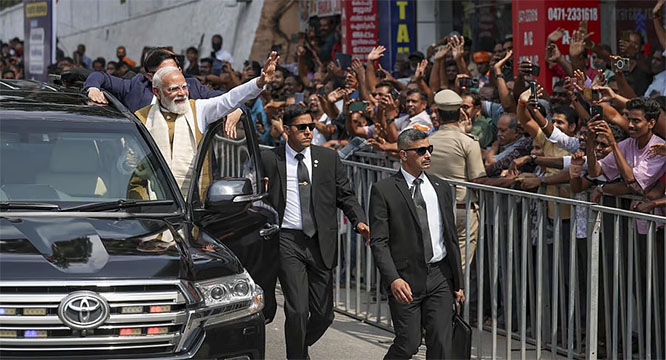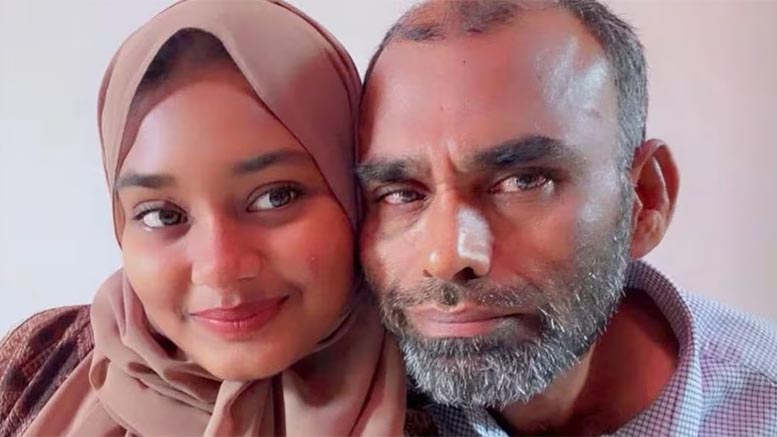Gaza, Dec 6: Protests have broken out in the Gaza Strip in response to US President Donald Trump's expected decision to recognise Jerusalem as Israel's capital, as Palestinian leaders called for three days of rage against the move.
Hundreds of Palestinians took to the streets in Gaza City on Wednesday, carrying banners denouncing Trump, hours ahead of his impending declaration that would also see the US embassy move from Tel Aviv to Jerusalem.
The declaration, which is expected at 18:00 GMT on Wednesday, comes amid global condemnation of the decision.
Speaking to Al Jazeera from Gaza, Hamas leader Ismail Haniyeh described Trump's decision as a "flagrant aggression".
"This decision is an uncalculated gamble that will know no limit to the Palestinian, Arab and Muslim reaction," he said.
"We call on stopping this decision fully because this will usher in the beginning of a time of terrible transformations, not just on the Palestinian level but on the region as a whole. This decision means the official announcement of the end of the peace process."
'Ball of fire'
Al Jazeera's Bernard Smith, reporting from Gaza, said people did not bother to wait for the announcement and spontaneously gathered to protest against the plans.
"This is an indication of what might come after Trump speaks later today. People here compared the protests to a small ball of fire that would roll and turn into a much larger ball later on," Smith said.
"The move by the US seems to have further unified the Palestinians. Hamas and the smaller factions in Gaza have given their full support to Mahmoud Abbas' Fattah movement in their opposition to the US move. There is full unity on the Palestinian streets behind this cause," he added.
Resistance groups in Gaza called on the Palestinian Liberation Organization to withdraw its recognition of Israel in response to Trump's expected move.
"At a time when the city of Jerusalem is subjected to systematic Judaisation and our people are exposed to the suffering from repression, displacement and exile comes the American decision to declare the city of Jerusalem as the capital of [Israel] in violation of all international conventions and norms," the factions said in a statement.
In Lebanon's capital, Beirut, hundreds of demonstrators gathered in the Palestinian refugee camp Bourj el-Barajneh to protest against Trump.
Jerusalem remains at the core of the perennial Israel-Palestine conflict as Palestinians want Israeli-occupied East Jerusalem as the capital of a future state.
Leaders in the Middle East and elsewhere warned Trump that his plans would have grave implications for the so-called peace process and on regional stability.
Hours ahead of Trump's expected announcement, British Prime Minister Theresa May said she intended to speak to the US president about the status of Jerusalem, adding that the fate of the city should be determined through negotiations between Israel and the Palestinians.
"Jerusalem should ultimately form a shared capital between the Israeli and Palestinian states," said May.
Earlier on Wednesday, Iran's Supreme Leader Ayatollah Ali Khamenei said the US move was "because of their incompetence and failure", while the Syrian foreign ministry released a statement saying: "[The move] is the culmination of the crime of usurping Palestine and displacing the Palestinian people."
In his weekly address, Pope Francis said that the status quo that governs Jerusalem's al-Aqsa Mosque compound should be respected. The state of Jordan has been the custodian of all Muslim and Christian sites in Jerusalem since 1994.
Status quo
US officials said that Trump "remains committed to achieving a lasting peace agreement between the Israelis and Palestinians and is optimistic that peace can be achieved".
One official said that Trump's decision "doesn't change the status quo with respect to the holy sites and other sensitive issues".
But Ali Abunimah of the Electronic Intifada said that one would have to be "living on another planet for the last few decades to believe that the US was ever an honest broker".
"It is a more honest expression of American policy, which is to support Israel unconditionally, including Israel's illegal colonisation and settlement-building in East Jerusalem," he said, adding that "this has effectively been US policy for many, many years and Trump is simply coming out and being open about it".








Comments
Add new comment